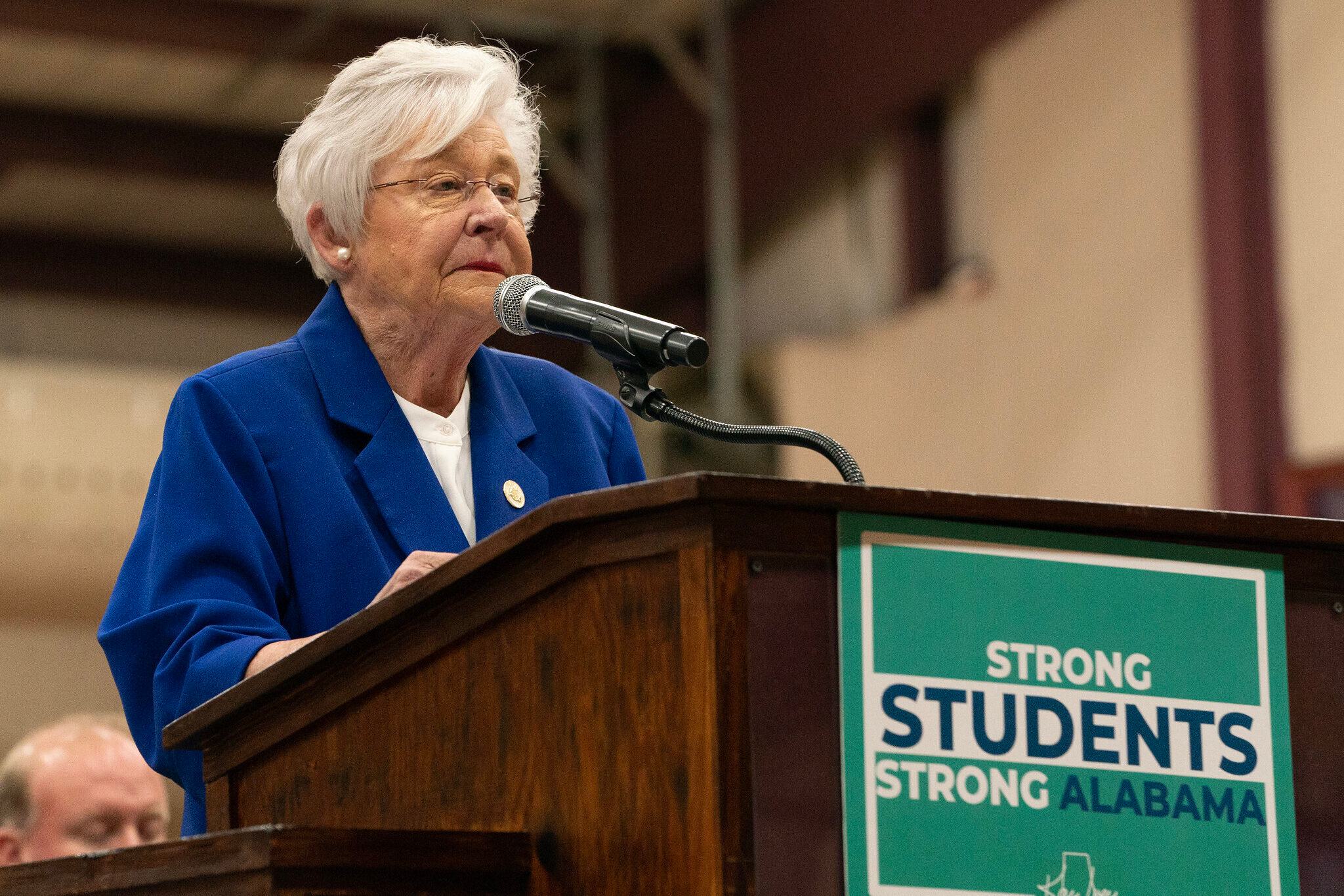Governor Kay Ivey recently responded to Alabama Public Library Service (APLS) director Nancy Pack's defense of the state's partnership with the American Library Association (ALA), expressing no abatement to her concerns and suggesting policy changes.
In September, Ivey sent a letter to Pack demanding answers in the growing controversy surrounding Alabama libraries and sexually explicit books and APLS's connection with the ALA.
Pack later responded to Ivey's letter, attempting to give answers to the questions, along with a self-authored defense of the ALA.
On Wednesday, Ivey sent another public letter to Pack, calling for policy changes at APLS while criticizing Pack for not addressing the core of the issue.
"After Reading your submission, however, I still lack confidence that our libraries are most effectively fulfilling their mission," Ivey said. "In my previous letter to you, I described the core problem as the exposure of children and youth to inappropriate materials without adequate means of parental supervision. Unfortunately, your response does not persuade me that Alabama libraries have policies in place to strike the right balance in responding to this problem."
Pack's response put the sole responsibility of shielding children from inappropriate library material solely at the feet of parents and guardians. Ivey agreed with the general sentiment but said that libraries should share the load of protecting children from "harmful material."
"To be clear, I agree that parents bear ultimate responsibility for supervising their children's reading material," Ivey continued. "But the question here goes beyond that: What can libraries do to support parents in helping their children avoid harmful materials?"
"Without more, invoking 'parental responsibility' – and only 'parental responsibility' – in response to parents' legitimate concerns sends the wrong message, that libraries are not a place for families or children. To the contrary, parents should be confident that the materials available in children's sections are, in fact, suitable for children. And children should have the freedom to wander freely in a children's section without being exposed to harmful materials," she added.
In her response to Ivey, Pack argued in favor of ALA and boasted of the state's adoption of an amended version of ALA's "library bill of rights." Despite the defense, Ivey says she still harbors "serious misgivings" about ALA and its "influence over Alabama libraries."
"As I said in my previous letter, when the ALA Bill of Rights prohibits 'age' discrimination, the ALA apparently means that children should have a right to access all library content, no questions asked," Ivey said. "According to reports, librarians have cited this policy as a reason not to relocate inflammatory exhibits in a library's children's section, but such a policy is indefensible and has no place in Alabama libraries."
She continued, "Your response also included a purported 'critical analysis' of the ALA's relationship with the Library Service, but very little in that analysis engages with the ALA's shortcomings. Moreover, several of the ALA's purported benefits are not benefits at all. For example, the 'critical analysis' praised the ALA's 'intellectual freedom efforts' as a reason to remain affiliated with the ALA. But according to the ALA's 'Office of Informational Freedom,' libraries must not use 'age restrictions' in response to 'objections from parents or anyone else.' As indicated above, that position is untenable here in Alabama."
Ivey said she understood calls to disaffiliate the state from the ALA. However, she acknowledged the need for "careful balancing between the ALA's clear shortcomings and whatever advantages it may offer Alabama libraries in ways that do not facilitate the exposure of children and youth to harmful content."
In her letter, Ivey suggested that APLS should, at a minimum, adopt the following policies:
· Make state aid for local libraries contingent on the adoption of sensible policies to facilitate greater parental supervision of their children.
· Require all expenditures of public funds to the American Library Association to be approved by the relevant governing authority in an open, public meeting.
· Reaffirm local libraries' ability to respond to parental concerns about sexually explicit or other inappropriate materials.
"[L]ibraries must not be a place to expose children to inappropriate content without the knowledge and consent of their parents," Ivey concluded. "Libraries should listen to parents when it comes to what content is openly available in children's sections of libraries."
In her letter, Ivey proposed amendments to APLS's rules to address citizens' issues with including certain books. The modifications would require local libraries to adopt policies related to the issues to receive state funding.
The policies relate to the physical location and relocation of sexually explicit or other material deemed inappropriate for children or youth and require advanced approval to display such books.
The proposed amendment also clarifies that "Exercising discretion in the location of sexually explicit material or other material deemed by the public library board to be inappropriate for children or youth does not constitute a denial of service on the basis of age. Taking age into account when recommending, displaying, or otherwise actively promoting library materials does not constitute a denial of service on the basis of age."
To connect with the author of this story or to comment, email craig.monger@1819news.com.
Don't miss out! Subscribe to our newsletter and get our top stories every weekday morning.










